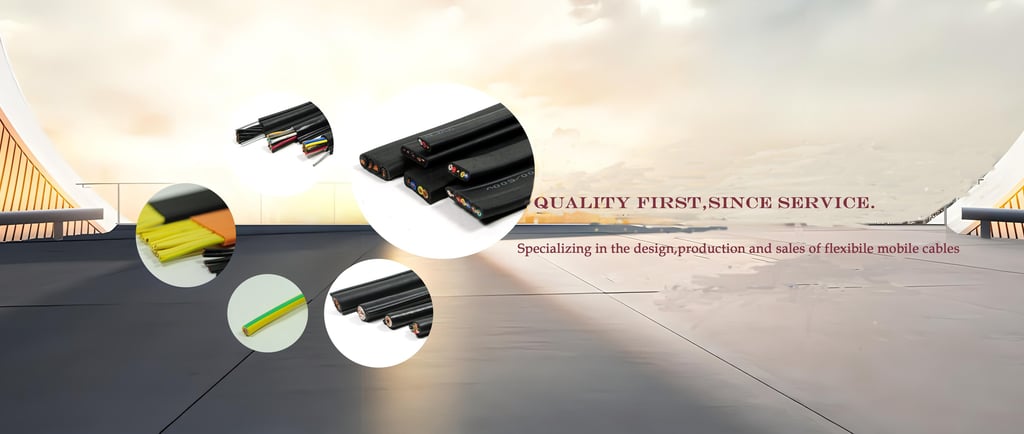Top Benefits of Using Flexible Cables in Industry
In an industrial landscape characterized by rapid change and technological advancement, the choice of components can significantly impact efficiency and productivity. One such component that has gained immense popularity is the flexible cable. These cables offer a myriad of benefits that make them ideal for various industrial applications.
9/24/20241 min read


What Are Flexible Cables?
Flexible cables are specially designed to allow movement and bending, making them suitable for dynamic environments. Unlike rigid cables, flexible cables can endure frequent flexing and twisting without sustaining damage. This quality makes them a favorite in industries ranging from manufacturing to healthcare.
1. Increased Flexibility
One of the most significant advantages of flexible cables is their ability to adapt to different movements and orientations. This flexibility is crucial in applications involving robotics, conveyor systems, and any machinery that requires parts to move. By utilizing flexible cables, industries can enhance operational efficiency while minimizing wear and tear on components.
2. Enhanced Safety
Flexible cables are often insulated with high-quality materials that not only protect against electrical hazards but also reduce the risk of mechanical failure. This insulation is particularly important in industrial settings where machinery operates in harsh conditions. By choosing flexible cables, companies can enhance safety for their employees and equipment.
3. Cost-Effectiveness
While the initial investment in flexible cables may be higher than that of traditional cables, the long-term savings are undeniable. Their durability means less frequent replacements and reduced downtime. Additionally, the improved performance of flexible cables leads to increased productivity, further contributing to cost-effectiveness.
4. Versatility in Applications
Flexible cables are versatile and can be used across various industries. In manufacturing, they are crucial for connecting machinery and facilitating automation. In healthcare, flexible cables are vital for medical devices and imaging systems, where reliability and precision are essential. This versatility makes them a wise choice for any industrial application.
5. Future-Proofing
As technology continues to evolve, industries must adapt to new demands. Flexible cables provide the versatility needed to integrate new technologies without the need for complete overhauls. This adaptability ensures that businesses remain competitive and prepared for future challenges.
Conclusion
In conclusion, flexible cables offer numerous benefits that make them a superior choice for various industrial applications. Their flexibility, safety features, cost-effectiveness, versatility, and future-proofing capabilities make them essential for any industry looking to thrive in today’s fast-paced environment. By incorporating flexible cables into operations, businesses can enhance efficiency, safety, and overall performance.
